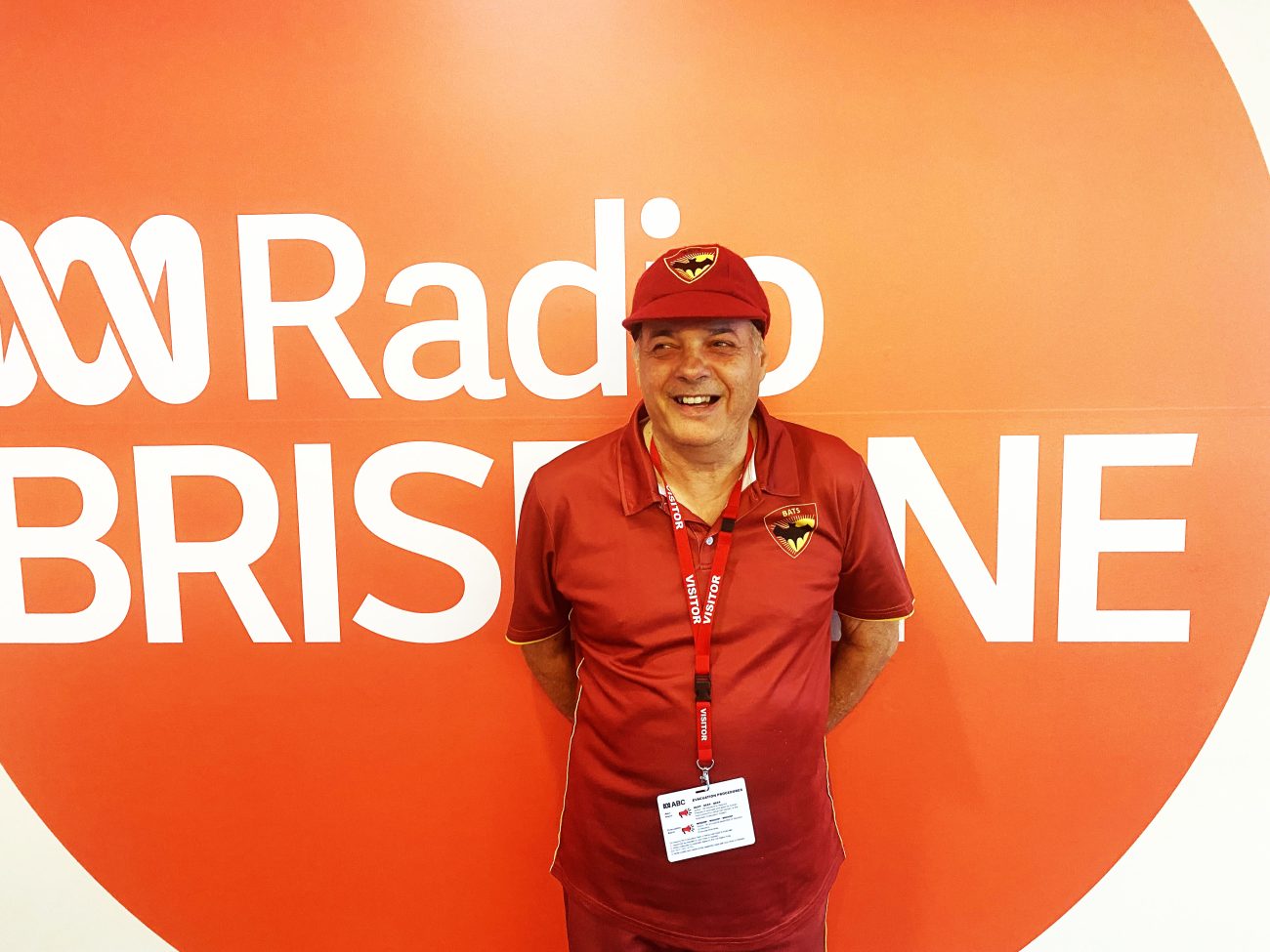Listen to the interview with ABC Radio about the Blind Bats Inc. Beeping Cricket Ball; click here
Transcript
What’s your story? What happened? I was born with Pink’s disease, which is a disease that where your hands and feet were a very bright pink. And I was born in Wollongong and it only happened to about six babies. So it was that disease was carried from England. And so they sent off to England for the medical treatment for it was, you know, a series of tablets or some medicine. And then once that was given, my hands went back and my feet went back to a normal colour. Right. But it left me and the other six babies that I haven’t met, but the other six babies, we all had the same eyesight problem.
And the biggest problem through my life wasn’t just the least sight that I had, because they started off with 15% in one eye, which was pretty good. But my eyes wiggle rapidly all the time. I don’t know whether you can see me from there, but they do wiggle and when they wiggle it’s like a television screen sort of scrolling, only going the other way and it’s very hard to focus on anything or see things and I have no control over it. They’ve just got to wait till it stops before I can do some things. Or I have my cane or my wife here. She helps me a lot. Yeah. Olga is. Besides you here this morning in the ABC Radio Brisbane Breakfast Studio and Paul, let’s talk about that. What then did the world of blind cricket open up to you then personally?
Well yeah. When I was at school I was just a target for branding because I couldn’t see the ball coming. And, you know, you sustained in a defensive situation and then just hope that the ball hit the bat. So I gave cricket away and even in family sort of activities and everything, they used to lob it very gently, a tennis ball, very gently, and actually aim at the bat for me to hit it But I met this dear friend who’s deceased now, and he introduced me to blind cricket. And from that time on I was sold on it and I did my best and I represented and I just thought that I’m reflecting in my life. I just thought this is what I’d like to do to give back. I’d like to make this game so it’s good for the people with least sight. And so in the playground, at schools and anywhere, it’s called beep cricket. It’s not called blind cricket. So they all think it’s a new revolution thing where we’ve got this fancy beeping ball, but they don’t realise it’s helping the people that can’t see.
It’s an incredible idea, like you said, do you want to see this adopted far and wide and let’s hope that you see that mission achieve. Paul, thanks so much for sharing your story with us today. Can I just say that the NDIS has made all this happen so people that don’t understand they’ve funded this, ball to be produced and they’re funded our charities so that we could get off in our first year.
Well, so glad to hear about it, Paul. Thanks for sharing your experiences. And let’s stay in touch to hear more about the story of BEEP cricket, as you call it. Thank you very much. Paul Sepp, the president of Blind Bats and Blind Bats, which is at more morayfield hosts come and try beep cricket days every Sunday. The club also has other beat ball sports, including, as Paul was mentioning, softball, soccer, touch football and hockey. So if you want some more information, just go to blind bats dot org. It’s 10 to 7 on ABC Radio Brisbane. You’re listening to Craig Csonka and Lauretta Ryan


